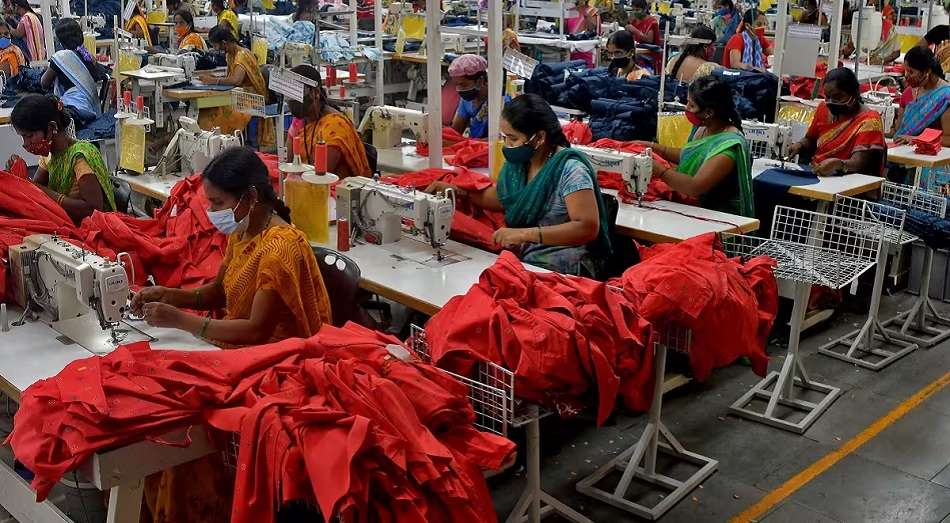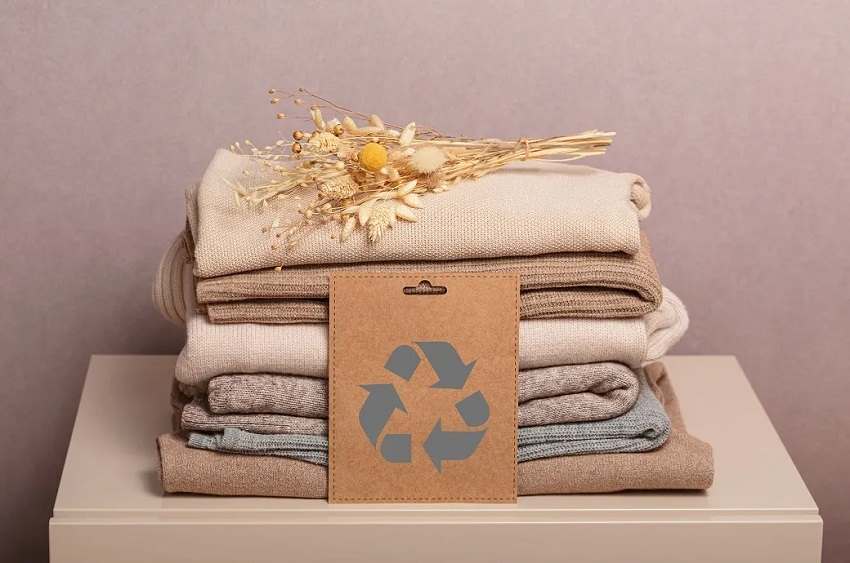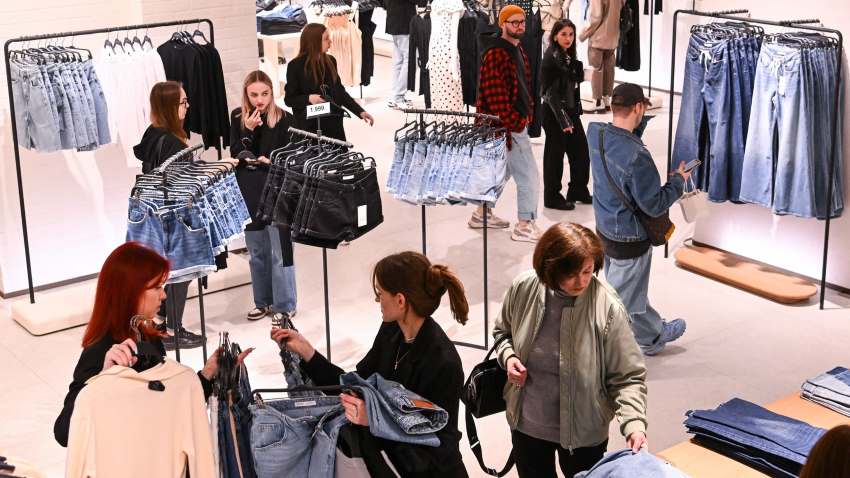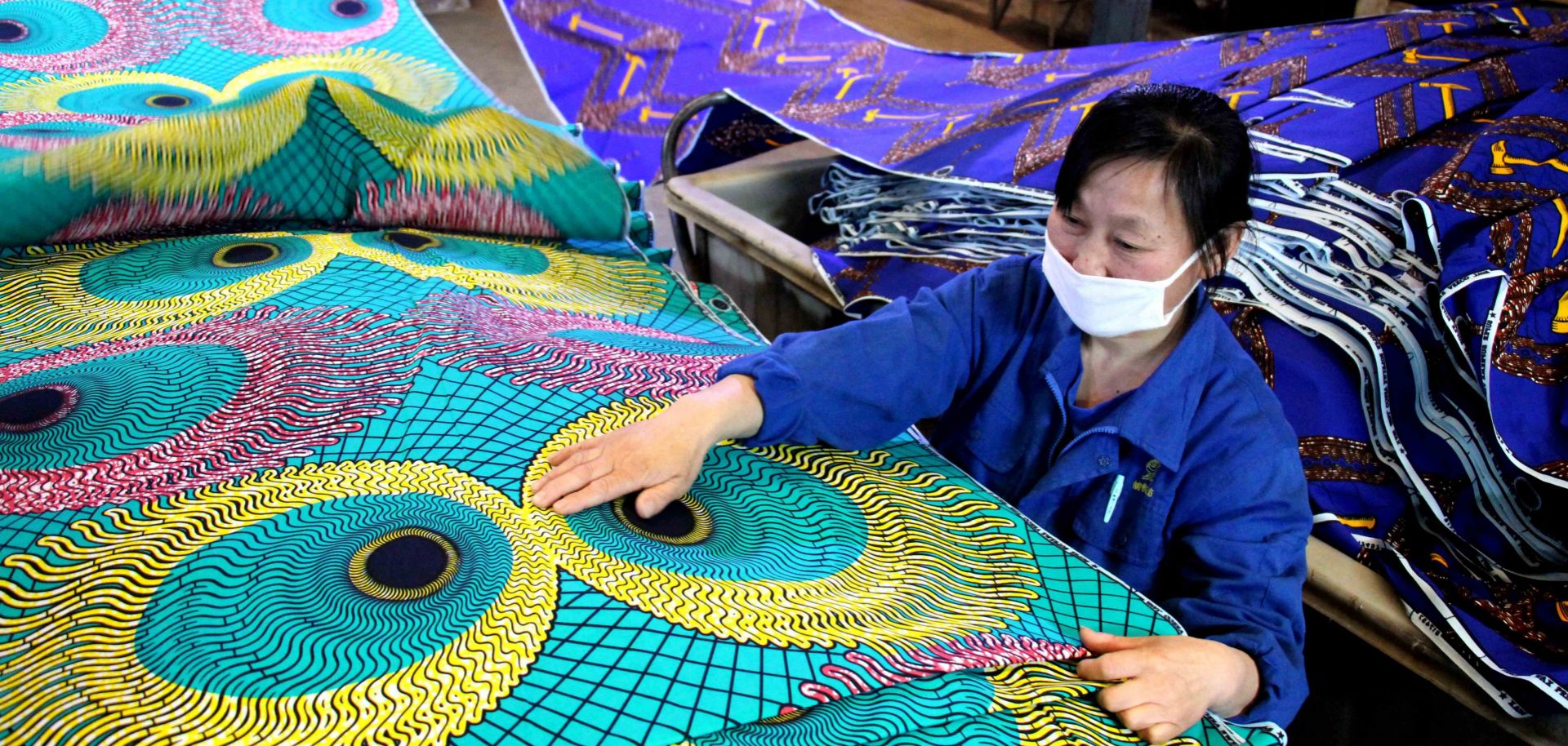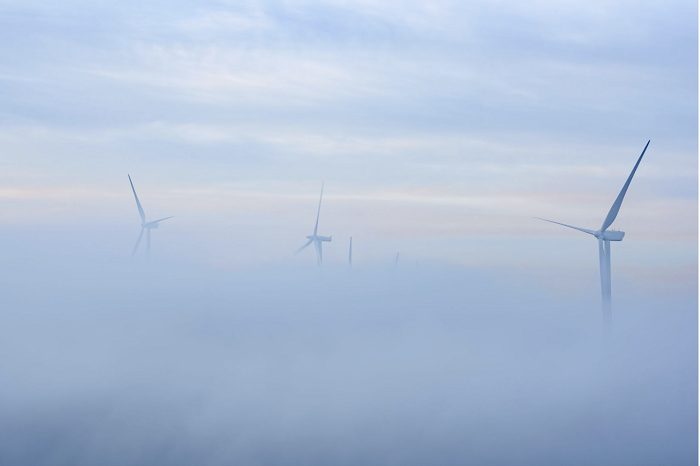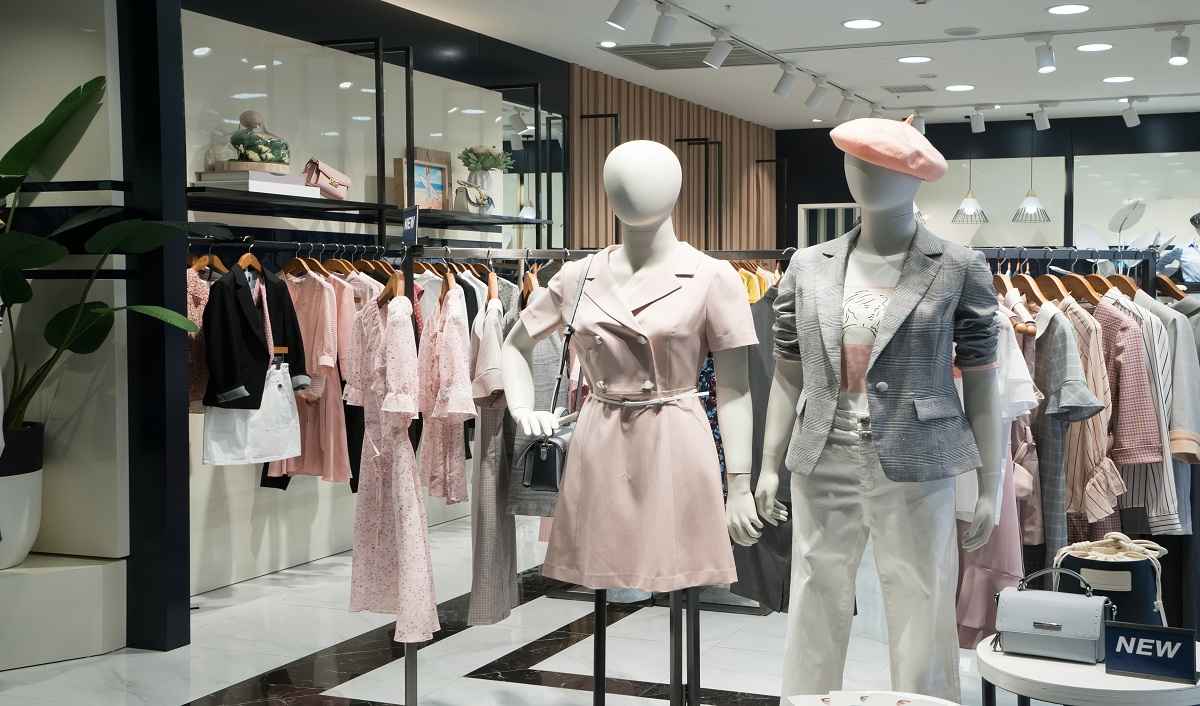FW
Texfair will be held in Coimbatore from November 17 to 20. This is a textile machinery, accessories and spares exhibition organized by Southern India Mills Association. It brings together manufacturers and suppliers of textile machinery, spares, accessories, components and consumers such as textile mills, power looms, handlooms and knitters under one roof.
Nearly 250 participants will display machinery, spares, accessories, testing equipment etc in 300 stalls, which would be a platform for textile mills to plan their present and future investment. Apart from exhibitors from different parts of the country, companies from Italy, China, Japan, and Switzerland will also take part.
About one lakh visitors are expected. These include chairmen, managing directors, directors, chief executive officers and shopfloor technicians from all sectors of the textile industry. Participation this year is nearly 20 per cent more than in the previous edition. Since industries can purchase their requirements under one roof, this has become part of the exhibition calendar for many participants. Mills on an average spend 2.5 per cent to three per cent of their turnover on spares and accessories.
As a concurrent event, a farm-to-finish expo will also be organised with about 50 companies showcasing cotton, fibers, yarn, made-ups and garments.
Bangladesh’s exports of readymade garments have not really taken off. One reason is a fall in orders from foreign buyers. After Brexit, the UK has reduced the price of readymade garment products. Following the price reduction, other EU countries have followed suit. Meanwhile production cost has increased by 17 per cent over the last three years. Interest on long-term loans is still high.
In fact, there are threats for Bangladesh as competitors like Vietnam are getting a bigger share and posting better growth in export earnings. Currently the country’s readymade garment products’ global share is 6.4 per cent while China’s market share stands at 39.3 per cent, topping the list. Buyers are keen on giving orders to rival countries. Clearly Bangladesh will have to produce quality products to compete in the global market.
Competing countries like China, Indonesia, Vietnam and Pakistan have already adjusted to the lower prices of the EU and UK as the governments of these countries have provided various incentives for exporting readymade garment products. But it has been tough for Bangladesh’s garment manufacturers to adapt to lower EU prices as they have not been provided similar incentives. As a result, export performance has declined.
Hyosung and Bossa has created a new collection of bi-stretch denim – Xplay. The collection is made with Hyosung’s Creora Fit 2 yarn. Hyosung is a Korean fiber and yarn company and Bossa is a Turkish denim mill.
Creora, a brand belonging to Hyosung have been used to give stretch to the denim. Creora Fit 2 uses a Creora spandex yarn that gives the garment 360-degree stretch. Creora Fit 2 is a proprietary technology, using a Creora yarn for 360 degree stretch offering a sleek and flattering fit. Creora Fit 2 allows Bossa to create the Xplay bi-stretch collection for the most flattering yet comfortable fitting denim. Bossa is targeting brands and retailers who want to enhance consumer loyalty through better fit and superior comfort.
Hyosung is the largest elastane producer in the world and first developed its own process for manufacturing spandex in 1992. Bossa recently celebrated its 66th anniversary. The company offers yarn, dyeing, weaving and denim finishing. Hyosung has a global network of more than 36 subsidiaries and international offices around the world. This year, the company is celebrating the 25th anniversary of Creora, which Hyosung produces in facilities around the world, including Korea, China, Vietnam, Turkey and Brazil.
The bi-stretch denim will be introduced at Denim Première Vision, France, November 14 to 15.
The Garment Textile Machinery Accessories and Technology (GTMAT) sourcing expo is on in Bangladesh from November 9 to 11, 2017. The event is aimed at providing a vibrant business platform for domestic and global players in the readymade garment and textile sectors to explore new business opportunities in Bangladesh.
More than 75 companies related to garment and textile machinery/solution providers from five countries including Bangladesh, India, Japan, China and Hong Kong are taking part in the expo. Bangladesh-based event management company Kites International Trade and Exhibitions is organising the expo. Total Lubricants, a globally renowned oil company, is the sponsor. And the Bangladesh Garments Accessories and Packaging Manufacturers and Exporters Association and the Bangladesh Knitwear Manufacturers and Exporters Association are the partners of this exhibition.
GTMAT showcases the latest developments in garment and textile machinery, accessories, new technology and services to make high-quality and value-added products. Through GTMAT, stakeholders including garment and fabric manufacturers can gain deep insights into new and innovative developments and technological interventions to help expand business and market reach.
Implementing the new and sophisticated technology would not only enable one to become more price-competitive and add value to products but also gain an edge in all other relevant areas of garment and textile manufacturing.
The South-South Cooperation project ‘Cotton with Decent Work’ is executed by the ILO in partnership with the Brazilian Cooperation Agency (ABC) and the Brazilian Cotton Institute (IBA).
The project aims to improve the working conditions of workers and cotton producers in the five program countries through systematization, sharing and adaptation of relevant Brazilian experiences. The ILO project on decent work in the cotton industry, and will be implemented from early 2018. In each country viz. Mali, Mozambique, Paraguay, Peru and Tanzania project teams worked with governments and workers’ and employers’ representatives to define the activities of the project. The project is executed by the ILO in partnership with the Brazilian Cooperation Agency (ABC) and the Brazilian Cotton Institute (IBA).
The initiative aims to improve the working conditions of cotton producers in the five countries through systematization, sharing and adaptation of relevant Brazilian experiences. Areas of focus include: poverty reduction; productive inclusion; prevention and eradication of child labor and forced labor; promotion of youth employment; combating discrimination; and promoting gender and social dialogue.
Bangladesh Denim Expo held from November 8 to 9, highlighted the need for transparency within the entire denim supply chain to attract global buyers. More than 5,123 visitors and 1,015 companies from 51 countries took part in the expo, whose theme was ‘Transparency’ in this edition.
A total of 65 exhibitors from 12 countries including Bangladesh, Germany, Italy, Japan, China, Singapore, Turkey, Vietnam, India, Pakistan, Spain and Hong Kong participated in the exhibition to showcase their denim pants, fabrics and modern machinery.
The expo was aimed at establishing a platform for denim stakeholders and making Bangladesh a one stop sourcing platform for the denim industry. The goal was to improve the image of the country’s denim and apparel industry, to have made in Bangladesh stand for excellence, increase cooperation and knowledge sharing and a collaborative approach that is able to highlight best practices and potentialities to make denim more and more transparent. Additionally local manufacturers benefit from the latest trends in the denim business across the world through such expos. The country’s high end denim products are attracting buyers particularly from the European Union and the United States. Currently, Bangladesh has 32 denim mills with a total annual production capacity of about 443 million meters.
European textile machinery manufacturers held road shows in Colombia in October. Their aim was to be their customers’ partners and not just machine suppliers. The road shows enabled them to understand customers’ needs and offer them the best possible technologies and machines with which they will be able to design new products, open new markets in a productive, reliable, cost effective and sustainable way. The road shows allowed machinery makers to meet long time customers and make new contacts.
The event format included a 15 minute presentation by each machinery manufacturer. Simultaneously, a mini fair was held where they showed animated videos of their machinery running at clients’ sites and showcased textile samples produced on their equipment. They were available to develop business cases and personalized technological solutions.
The manufacturers present at the show were: Belgium’s Bonas which produces state-of- the-art electronic jacquards for all kinds of fabric applications like terry toweling, furnishing fabrics, curtain fabrics, apparel; Spain’s Canmartex makers of electronic jacquard circular and single and double jersey; and Laroche from France, a pioneer in fiber processing machines.
DyStar has introduced Cadira Denim. This reduces water, waste and energy consumption and lowers substantial waste quantities from the effluent treatment plants. It helps brands and retailers and their production partners save valuable resources, reduce the carbon footprint of their textile goods and increase productivity by improving the utilisation of machinery.
Cadira Denim combines the most eco awarded indigo in the world, DyStar Indigo Vat 40 per cent solution, with the ecological advanced reducing agent Sera Con C- RDA. This combination allows a salt free dyeing with a strong effluent load reduction.
Cadira Denim reduces the use of sulfates by up to 95 per cent compared to dyeing with indigo powder in combination with the conventional reducing agent sodium dithionite (hydrosulfite). Total solids will also be reduced up to 90 per cent compared with indigo powder and hydrosulfite.
DyStar is a dyestuff and chemical manufacturer and solution provider. The Singapore-based company is also in the works to introduce additional concepts for more resource efficiency and productivity in the production of textiles.
DyStar aspires to become the world’s most sustainable and responsible supplier of colors, chemicals and services to the global textile industry. The company strives to achieve a new balance between being a responsible supplier and a profitable business in these changing times.
Mill on-call sales have increased almost every week during the 2017-18 marketing year, an excellent indication of improving demand. Cotton demand has resurfaced. Next year, cotton growers across the US will hold on to most of their 2017 plantings.
US cotton is the most competitive in the world. With futures between 67 and 72 cents mills will continue to flock to the US for cotton. US cooperatives and merchants have been aggressively offering strong basis bids to potential mills and that has encouraged excellent sales.
Driven by consumer preferences, and the rapid increase in polyester prices due to massive worldwide pollution issues, cotton has become much more price competitive versus polyester and other plastic fibers. Presently cotton appears to be the better alternative in 2018 for the Midsouth and the Southeast regions. Cotton will again be the only alternative for Texas and Oklahoma.
A slightly bullish scenario now exists for cotton, but any movement above 71 cents will be difficult. While the US crop was judged higher, as was US carryover, the more important decline in world stocks led the market higher. Some still feel that a trip to the very low 60s is imminent as growers could become more aggressive sellers as the end of the year looms.
Cashmere World is the only cashmere trade fair of its kind in the world, covering the full spectrum of products and services along the entire supply chain of the world's best-loved luxury materials–cashmere and fine fibres. It is a vertically integrated business platform for international cashmere suppliers and buyers to meet, network and preview the latest fashion trends and technology innovation and help foster the international collaboration of cashmere professionals.
Cashmere World is opening its doors in Hong Kong with new fair dates from March 14 to 16, 2018 to showcase latest colours and trends in fine fibres alongside, APLF-Leather and Materials, the world’s no.1 leather, materials and components trade show and Fashion Access, Asia’s leading fashion accessories trade fair.
All three events will offer excellent business opportunities to the thousands of leather, materials and fashion buyers passing through the fair during its three days duration.

